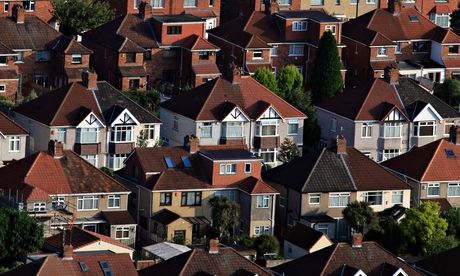It's time to change the language of house prices. For decades, media reports have casually talked of householders "enjoying" price rises, of "hotspots" where the market is "performing strongly". On the rare occasions prices fall, they are "depressed" or "subdued". But a new poll confirms it's not just a generation of priced-out Londoners who are rebelling: anger about an overheated market has spread across the country. No, the poll is saying, we don't "enjoy" ludicrous rises in house prices. Enough is enough.
This is an extraordinary turnaround, and a puzzle for economists steeped in conventional theories. In every other period of economic recovery, rising consumer confidence and rising house prices have gone hand in hand, creating a feelgood factor crucial for politicians seeking re-election. This time around, rising house prices are producing the opposite: a feel-bad factor among young adults permanently excluded from buying and furious about rapacious rents, combined with a growing sense of despair among the middle-aged no longer able to move up the fabled property ladder because each rung is financially just too far away from the one before. Add to that the many households with jumbo-sized mortgages who fear a return to "normal" interest rates, and you have a potent extra ingredient to the "cost of living crisis".
The poll suggests Ed Miliband's pledge to halt the sale of new homes to foreign speculators is tapping into deepening concern over the crisis in Britain's property market. It's not just the empty rows of billionaires' mansions in Hampstead, the sad queues of buyers for £400,000 flats near "murder mile" in Hackney or even the housing benefit claimants evicted from their homes by buy-to-let supremos such as the Wilsons. More worrying for George Osborne is a sense that the property market, pumped up by two government policies, Help to Buy and Funding for Lending, is working for the few rather than the many. Margaret Thatcher rode the wave of rising home ownership; David Cameron is presiding over its collapse.
House building is up, but remains one-third below the levels of 2006, which was even then regarded as too low to cope with demand swollen by Britain's fast-growing population. More people are questioning who the new-build is for when the majority of new homes built in London are bought by foreign investors. Speculators see UK property as a safe haven for their money in an unstable global economy. It's not there to meet the basic needs of residents.
Maybe the public's exhaustion with house price rises will translate into a flattening property market. Already the billions in easy money fed to the banks through Funding for Lending, which arguably has had a bigger impact on prices than Help to Buy, is fading away. Interest rates on five-year mortgages, increasingly used by buyers to protect themselves against future rate rises, are on the increase. Few people are predicting an early end to the property boom. But when it comes, maybe for the first time we will see a newspaper headline that reads: "Good news: house prices falling."



